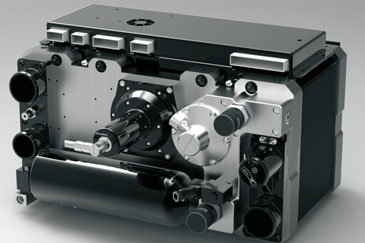What is a Hydrogen Fuel Cell?
A fuel cell is a device that cleanly converts the chemical energy from a fuel (typically hydrogen) into electricity through a chemical reaction of the fuel (or hydrogen) and an oxidizing agent (oxygen). Fuel cells are different to batteries in that they require a continuous source of fuel and oxygen or air to sustain the chemical reaction, whilst batteries generate an electromotive force (emf) through a reaction of the chemicals present in the battery. This means fuel cells can continuously produce electricity for as long as these inputs are supplied.

Hydrogen (H) is the lightest element, making up 75% of the universe’s baryonic mass. It offers a sustainable energy source, releasing no pollutants or greenhouse gases when used in fuel cells. Electrolysers generate hydrogen from water, while fuel cells use it to produce electricity, with water as the only emission.
Hydrogen is a combustible gas with unique properties like high buoyancy, wide flammability limits, and low flame visibility. While it can provide clean energy, safety precautions are essential. Understanding these hazards ensures that hydrogen and fuel cells can be used safely in various applications and working environments.
A Hydrogen Fuel Cell converts hydrogen and water into consistent power through electrolysis. It produces green energy with water as the only emission and minimal noise due to the lack of combustion. The most common type is the PEM fuel cell, which uses a membrane assembly to split hydrogen into atoms.
Benefits of using a Hydrogen Fuel Cell to create power
High Efficiency
Fuel cells are highly efficient, achieving up to 90% efficiency with cogeneration, outperforming traditional grids.
Reliability and High Quality Power
Fuel cells provide reliable, high-quality power, ensuring businesses stay operational even during grid failures.
Fuel Flexibility
Fuel cells run on hydrogen from various sources, including renewables, ensuring continuous and flexible power.
Energy Security
Hydrogen fuel cells provide reliable, local power, ensuring energy security during extreme weather and remote conditions.
Ruggedness and Durability
Fuel cells provide reliable power anywhere, from remote cell towers to military operations in extreme conditions.
Scalability
Quiet Operation
Fuel cells are quiet, making them ideal for parks, residential areas, and noise-sensitive locations.
-
Hydrogen fuel cells are here to offer you the next level of reliability, efficiency, and scalability.
Whether you’re looking to reduce emissions, boost energy performance, or find flexible solutions for your needs, fuel cells bring real benefits to the table.
Show All Benefits
Hybrid Renewable Energy Solutions
Hydrogen fuel cells are a powerful component of hybrid renewable energy systems.
By combining hydrogen with other renewable sources like solar, we can create a reliable and continuous energy solution.
For instance, excess solar energy can be used to produce hydrogen through electrolysis, which is then stored and used in fuel cells to generate power when sunlight is unavailable.
This hybrid approach provides flexibility, reduces dependency on traditional power sources, and ensures a clean, sustainable energy supply.

SOLAR + HYDROGEN PRODUCTION AND STORAGE + POWER MANAGEMENT SYSTEMS + HYDROGEN FUEL CELLS = 24/7 POWER

Unlocking the Potential of Hybrid Energy Solutions
Discover how combining solar, hydrogen, and hydrogen fuel cells can provide reliable, sustainable energy 24/7, even in the most remote locations.
